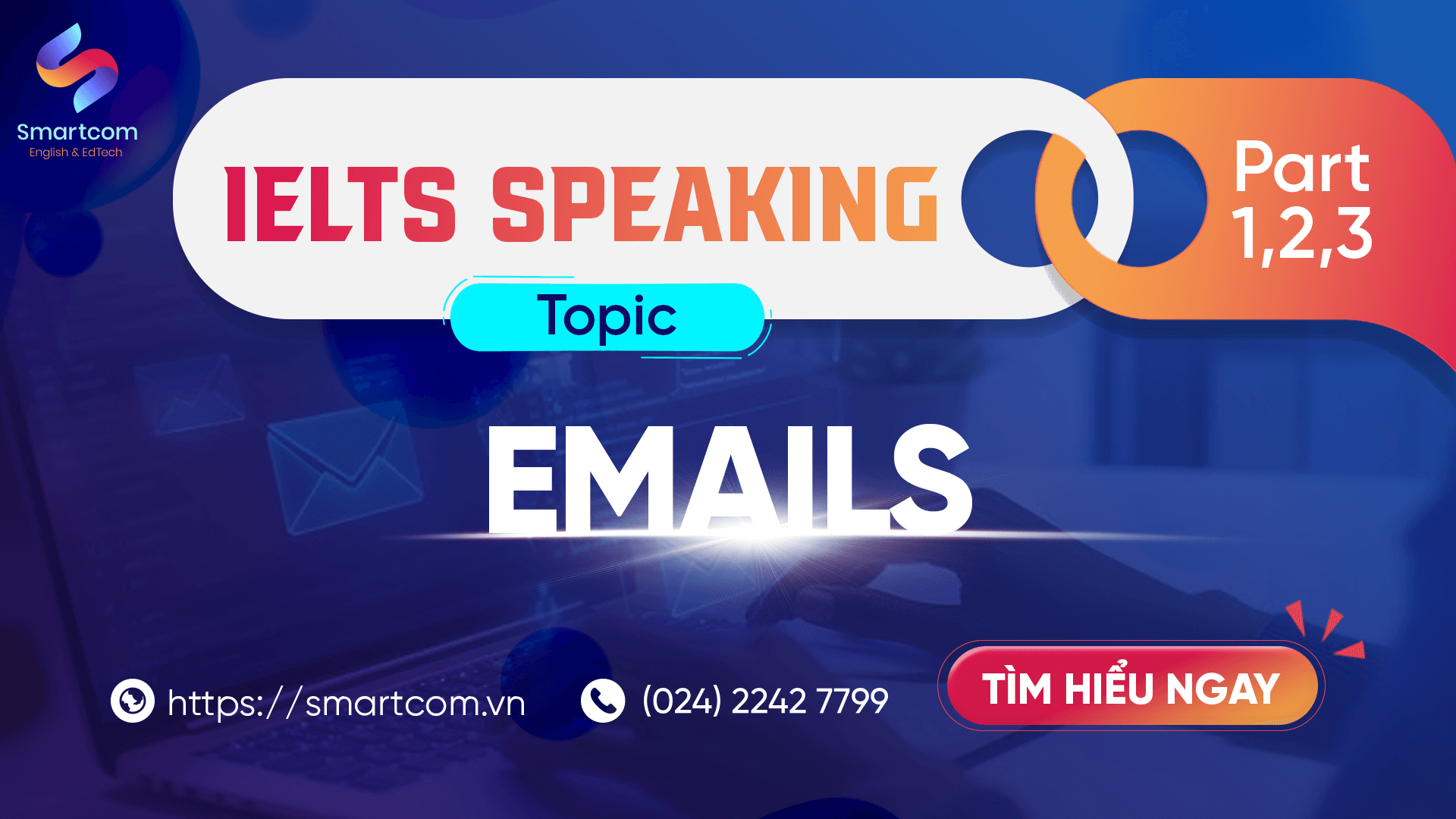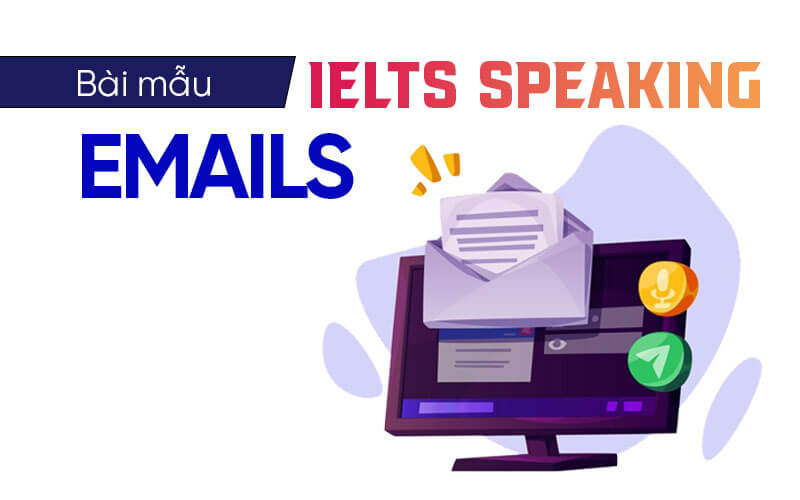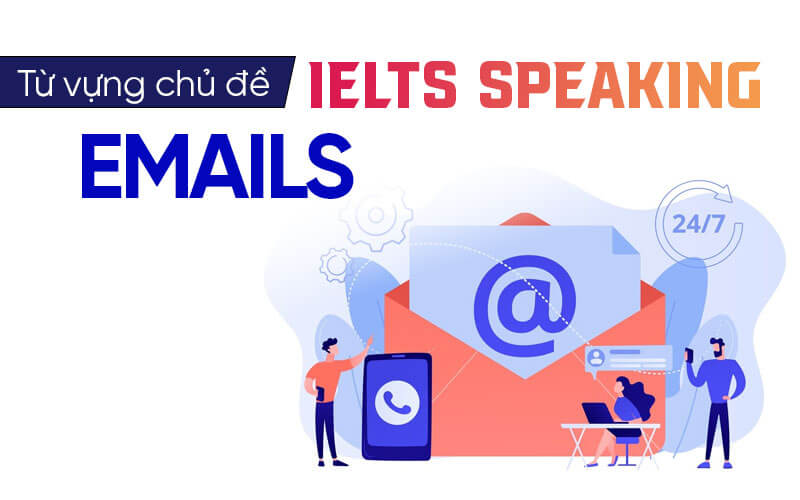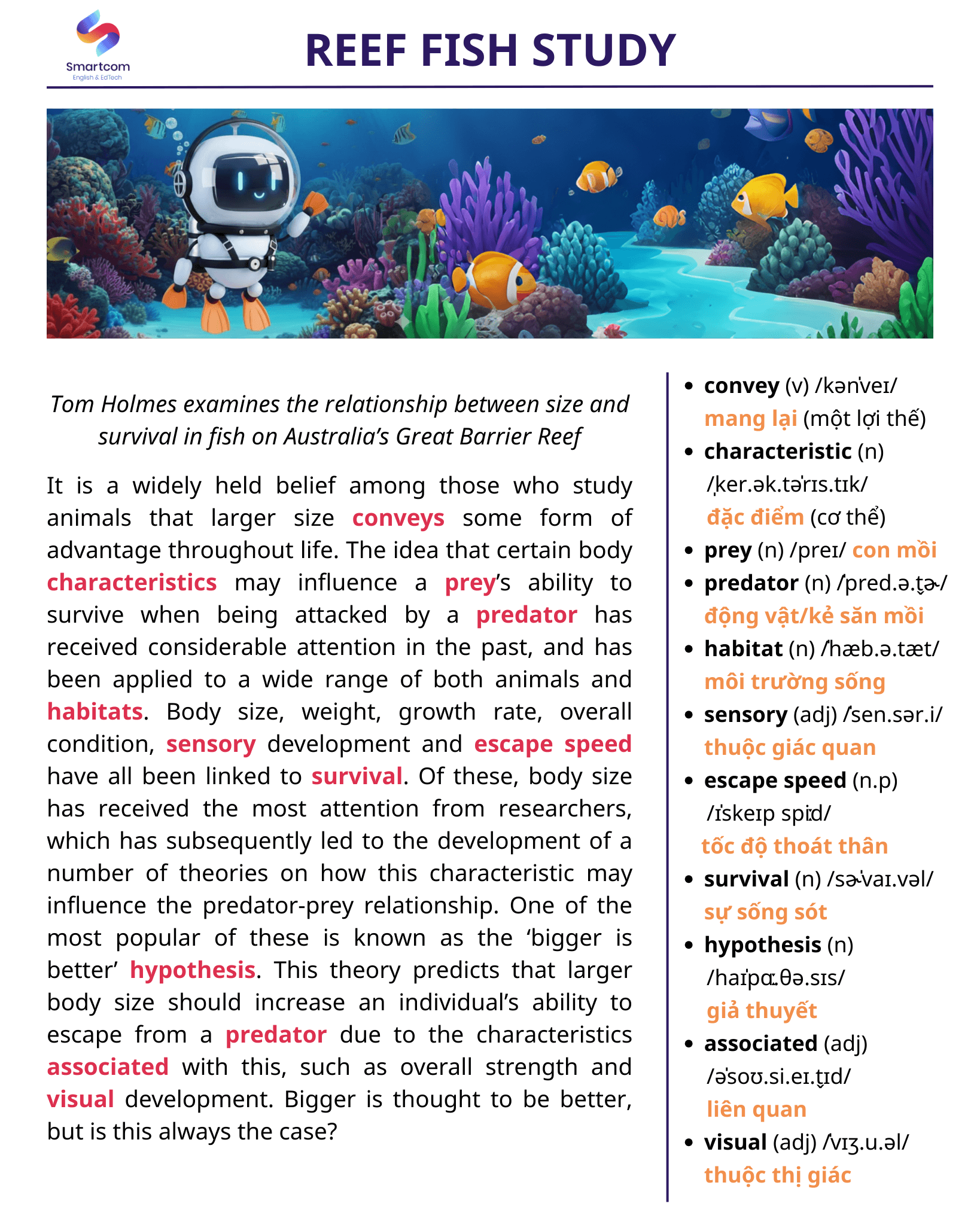Đội ngũ chuyên gia tại Smartcom English là tập hợp những chuyên gia đầu ngành trong lĩnh vực IELTS nói riêng và tiếng Anh nói chung. Với phương pháp giảng dạy sáng tạo, kết hợp với công nghệ AI, chúng tôi mang đến những trải nghiệm học tập độc đáo và hiệu quả. Mục tiêu lớn nhất của Smartcom Team là xây dựng một thế hệ trẻ tự tin, làm chủ ngôn ngữ và sẵn sàng vươn ra thế giới.
Vào phòng thi IELTS Speaking mà gặp chủ đề Emails, cảm giác chắc cũng “lâng lâng” như khi mở hộp thư và thấy cả đống email công việc chưa đọc!
Nhưng đừng hoảng, vì thực ra chủ đề này dễ “xử đẹp” hơn bạn tưởng. Chỉ cần nắm vững một vài từ vựng xịn sò, cách triển khai câu trả lời thông minh, bạn sẽ khiến giám khảo phải gật gù đó.
Bài viết này sẽ giúp bạn từng bước làm chủ chủ đề IELTS Speaking Emails với các câu hỏi thường gặp, bài mẫu và từ vựng hữu ích. Đọc tiếp nhé, vì đây có thể là “email” quan trọng nhất bạn cần mở hôm nay!

Bài mẫu ielts speaking emails Part 1
- Do you often write or receive emails?
Absolutely! I send and receive emails almost every day, mainly for work-related tasks, meeting arrangements, or important announcements. Although emails tend to be more formal than messaging apps, I find them essential for professional communication, as they help keep everything well-documented.
- What do you usually write emails about?
Most of the emails I write are for professional purposes. I frequently email colleagues to discuss projects, request updates, or follow up on pending tasks. Occasionally, I also write emails for personal matters, such as making reservations or keeping in touch with friends who live abroad.
- How often do you check your emails?
I check my emails multiple times a day, especially during working hours, since many important updates come through email. I make sure to stay on top of my inbox to avoid missing any urgent messages. However, on weekends, I check less frequently because I prefer to unplug and take a break from work.
- Do you prefer emails or text messages?
It depends on the context. For formal communication, I prefer emails because they are more professional, structured, and suitable for detailed discussions. But for casual conversations with friends and family, I’d rather use text messages since they are faster, more convenient, and feel more personal.

Bài mẫu ielts speaking emails Part 2
Describe a time when you had to write an important email.
- Who you wrote to
- What the email was about
- Why it was important
- How you felt after sending it
One time I had to write an important email was when I applied for a position at a reputable company. It was about a year ago, and I needed to send a well-crafted email to the HR manager, attaching my resume and cover letter to express my interest in the role.
This email was crucial because it was my first point of contact with the company, and I wanted to make a strong first impression. I carefully structured it to ensure it was professional, concise, and free of errors. I started by introducing myself, clearly stated my interest in the position, and highlighted my key skills and relevant experience to demonstrate why I was a good fit for the role.
After hitting the send button, I felt both anxious and excited. I kept refreshing my inbox, hoping for a positive response. Luckily, a few days later, I received an invitation for an interview, which eventually led to me securing the job. This experience reinforced the importance of effective email communication in professional settings.
Bài mẫu ielts speaking emails Part 3
- Do you think emails will eventually be replaced by instant messaging or social media?
I don’t think emails will ever become obsolete, but their role might evolve. Instant messaging and social media are more convenient for casual conversations, but emails remain the backbone of professional communication. Businesses, universities, and even government institutions still rely on them for formal documents and official correspondence. That said, we might see a future where emails are integrated with more interactive communication platforms to enhance efficiency.
- Do you think email scams and phishing are serious problems?
Absolutely. Email scams and phishing attacks have become increasingly sophisticated, making it harder for people to distinguish real messages from fake ones. Cybercriminals often use deceptive tactics to steal personal data or financial information. This is particularly dangerous for older people who may not recognize red flags like suspicious links or urgent requests for sensitive details. To combat this, individuals and businesses should implement strong cybersecurity measures, such as spam filters, multi-factor authentication, and regular awareness training.
- How can people avoid misunderstandings in email communication?
The key to avoiding misunderstandings in emails is clarity and tone. First, structuring the email properly with a clear subject line and well-organized content helps the reader understand the message right away. Second, tone is crucial, since emails lack facial expressions and vocal cues, they can sometimes come across as cold or impolite. Using polite language, and even emojis in informal settings, can help soften the message. Lastly, proofreading before hitting send is essential to prevent miscommunication due to typos or ambiguous wording.
Xem thêm: IELTS Speaking Mirrors
Từ vựng chủ đề ielts speaking emails
- meeting arrangements (n): sắp xếp cuộc họp
- well-documented (adj): được ghi lại đầy đủ
- request updates (v): yêu cầu cập nhật thông tin
- follow up on (v): theo dõi
- pending task (n): nhiệm vụ còn dang dở
- working hours (n): giờ làm việc
- stay on top of my inbox (v): kiểm soát tốt hộp thư đến
- urgent messages (n): tin nhắn quan trọng/cần gấp
- unplug (v): tạm rời xa công nghệ, công việc để thư giãn
- structured (adj): có tổ chức
- reputable (adj): danh tiếng
- well-crafted (adj): được viết chỉn chu
- concise (adj): chính xác
- obsolete (adj): lỗi thời, không còn được sử dụng nữa
- official correspondence (n. phr): thư từ chính thức
- phishing attack (n. phr): cuộc tấn công lừa đảo qua email nhằm đánh cắp thông tin
- sophisticated (adj): tinh vi, phức tạp
- distinguish (v): phân biệt
- cybercriminal (n): tội phạm mạng
- deceptive tactic (n. phr): chiến thuật lừa đảo
- red flag (n. phrase): dấu hiệu cảnh báo
- suspicious (adj): đáng ngờ
- spam filters (n. phrase): bộ lọc thư rác
- multi-factor authentication (n. phrase): xác thực đa yếu tố
- well-organized (adj): được sắp xếp hợp lý
- vocal cue (n. phr): tín hiệu giọng nói
- ambiguous (adj): mơ hồ
- proofreading (v): đọc lại và kiểm tra

Tổng kết
Hy vọng với bài viết trên, các bạn sẽ không còn bối rối khi gặp chủ đề IELTS Speaking Emails. Đừng quên luyện tập thường xuyên, ghi âm câu trả lời để cải thiện phát âm và ngữ điệu.
Nếu bạn muốn đạt band điểm mong muốn trong IELTS Speaking? Câu hỏi nên học IELTS ở đâu hay chi phí học IELTS làm bạn chần chừ! Smartcom English mang đến khóa học chất lượng – học thật, luyện đúng trọng tâm – để bạn bứt phá điểm số nhanh chóng.
Đăng ký ngay! – [Khóa học IELTS] tại Smartcom là lựa chọn hoàn hảo giúp bạn tối ưu hóa điểm số, với lộ trình học tập được cá nhân hóa giúp bạn tập trung cải thiện kỹ năng còn yếu, đồng thời nâng cao thế mạnh của mình một cách hiệu quả. Để IELTS Speaking không còn là trở ngại, theo dõi fanpage của Smartcom để cập nhật những bài viết chất lượng hơn nữa nhé!
Kết nối với mình qua


![[PDF + Audio] Tải Sách IELTS Cambridge 19 (Kèm đáp án)](https://smartcom.vn/blog/wp-content/uploads/2024/06/ielts-cambridge-19_optimized.png)


![[PDF + Audio] Tải Sách IELTS Cambridge 17 (Kèm đáp án)](https://smartcom.vn/blog/wp-content/uploads/2024/07/sach-ielts-cambridge-17_optimized.jpg)

![[PDF + Audio] Tải Sách IELTS Cambridge 15 (Kèm đáp án)](https://smartcom.vn/blog/wp-content/uploads/2024/07/ielts-cambridge-15_optimized.jpg)








